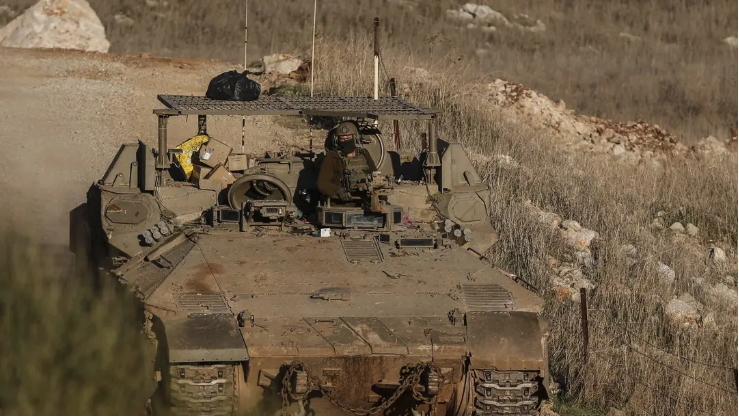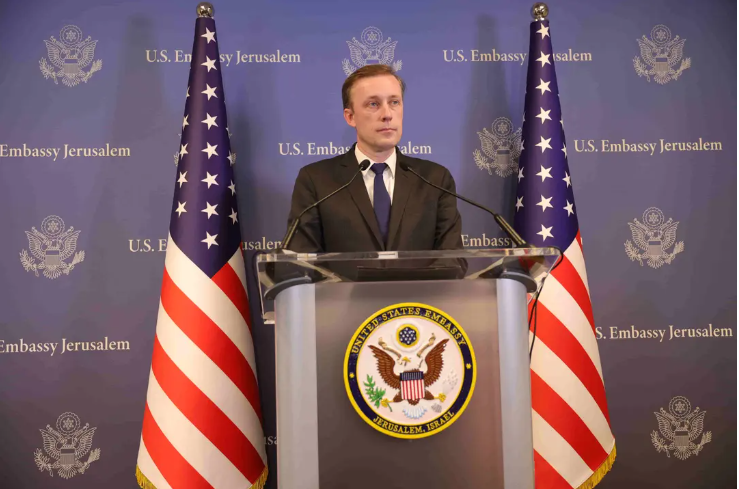Fires in Northern Israel After Hezbollah Attacks
Wildfires spread across northern Israel Monday night after Lebanon's Hezbollah fired rockets and drones into the area. Authorities told residents who had not already evacuated to leave the area. Six military reservists were injured trying to contain the fires....
Facts
- Wildfires spread across northern Israel Monday night after Lebanon's Hezbollah fired rockets and drones into the area. Authorities told residents who had not already evacuated to leave the area. Six military reservists were injured trying to contain the fires.1
- On Tuesday, firefighters had to be dispatched to Biriya Forest near Safed after a smaller fire was sparked. Local authorities said the fire was started after Israeli forces fired an interceptor missile at an 'incoming threat.' Later on Tuesday, Israel's fire service said most of the fires in the north had been brought under control.2
- Tensions on the Lebanese border have deepened in recent days, with Hezbollah saying it had sent a squadron of explosive drones into northern Israel on Monday in response to what it called an 'assassination' of one of its members in a drone strike.3
- Wildfires have also been reported on the Lebanese side of the border this week. Fighting on the Lebanese border erupted on Oct. 8, and Israel has used incendiary munitions, reportedly including white phosphorus, in south Lebanon since the early days of the war.4
- Meanwhile, the US on Monday circulated a draft resolution at the UN Security Council which supported the cease-fire proposal announced by US Pres. Joe Biden last week. The draft calls on Hamas to accept the deal. It reportedly did not mention Israeli acceptance of the proposal.5
- During his speech on Friday, Biden said that an 'enduring ceasefire' in Gaza would help end fighting on the Lebanese border. Hezbollah has said that it would halt its attacks on Israel when the war in Gaza ends.6
Sources: 1Alarabiya, 2Timesofisrael, 3Reuters, 4L'Orient Today, 5Associated Press and 6Al Jazeera.
Narratives
- Pro-establishment narrative, as provided by The Forward. A guaranteed end to the war will ensure increased humanitarian aid to the besieged enclave, preserve Israel's security, and create a better 'day after' in Gaza without Hamas in power. If Hamas is ready to engage constructively, the Israeli government must stand behind the cease-fire plan. Biden is calling time on the war — Netanyahu must seize this moment and stop the fighting.
- Pro-Israel narrative, as provided by Jerusalem Post. Iran's proxies, primarily Hezbollah, are itching to strike Israel, especially given the impunity these groups have been afforded since Hamas' Oct. 7 terrorist attack. Hezbollah has nearly doubled the amount of attacks it is launching into northern Israel, which has been emptied of its residents. The time to confront Hezbollah and Iran's other terrorist proxies is fast approaching if diplomacy fails.
- Pro-Palestine narrative, as provided by Al Jazeera. Though this deal, which is nearly identical to earlier proposals that Hamas has already agreed to, must go through, it is too little too late. Israel has massacred over 35K Palestinians in Gaza, yet it has taken months even to approach a deal due to Israeli intransigence. Regardless of how this war ends, Israel must face accountability for its many crimes.
- Pro-Iran narrative, as provided by Al Mayadeen English. Hezbollah and the regional resistance will only end their attacks when Israel's war in Gaza ends and it withdraws its forces. Indeed, the resistance's primary goal is to end the war in Gaza, not start a far larger regional war. Foreign powers believe they can dictate to Hezbollah how it deals with Israel's aggression and impose concessions regarding the status of Lebanon's southern border. However, Hezbollah has many tricks up its sleeve, and it is prepared to defend Lebanon from Israel's genocidal aggression.







